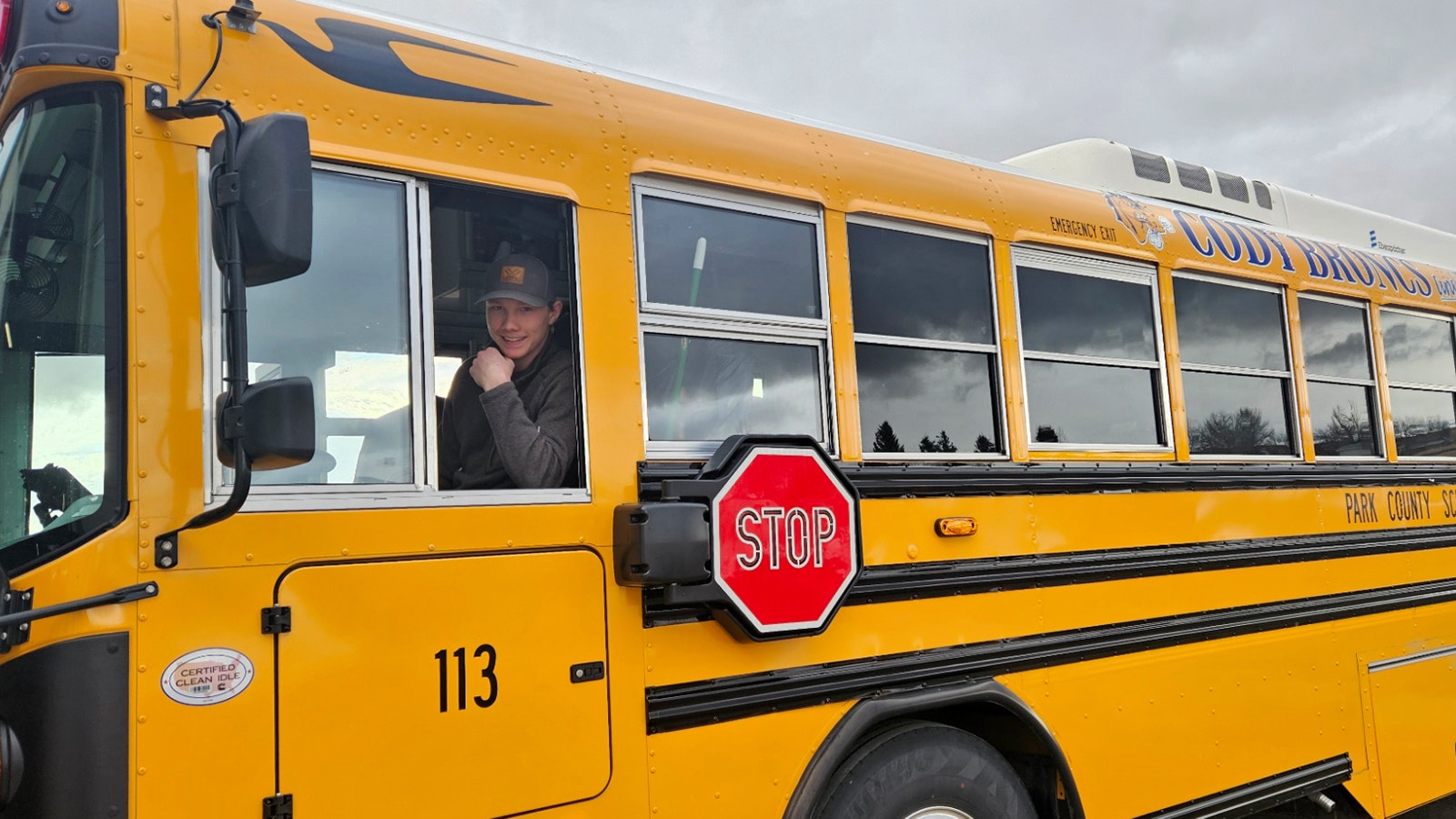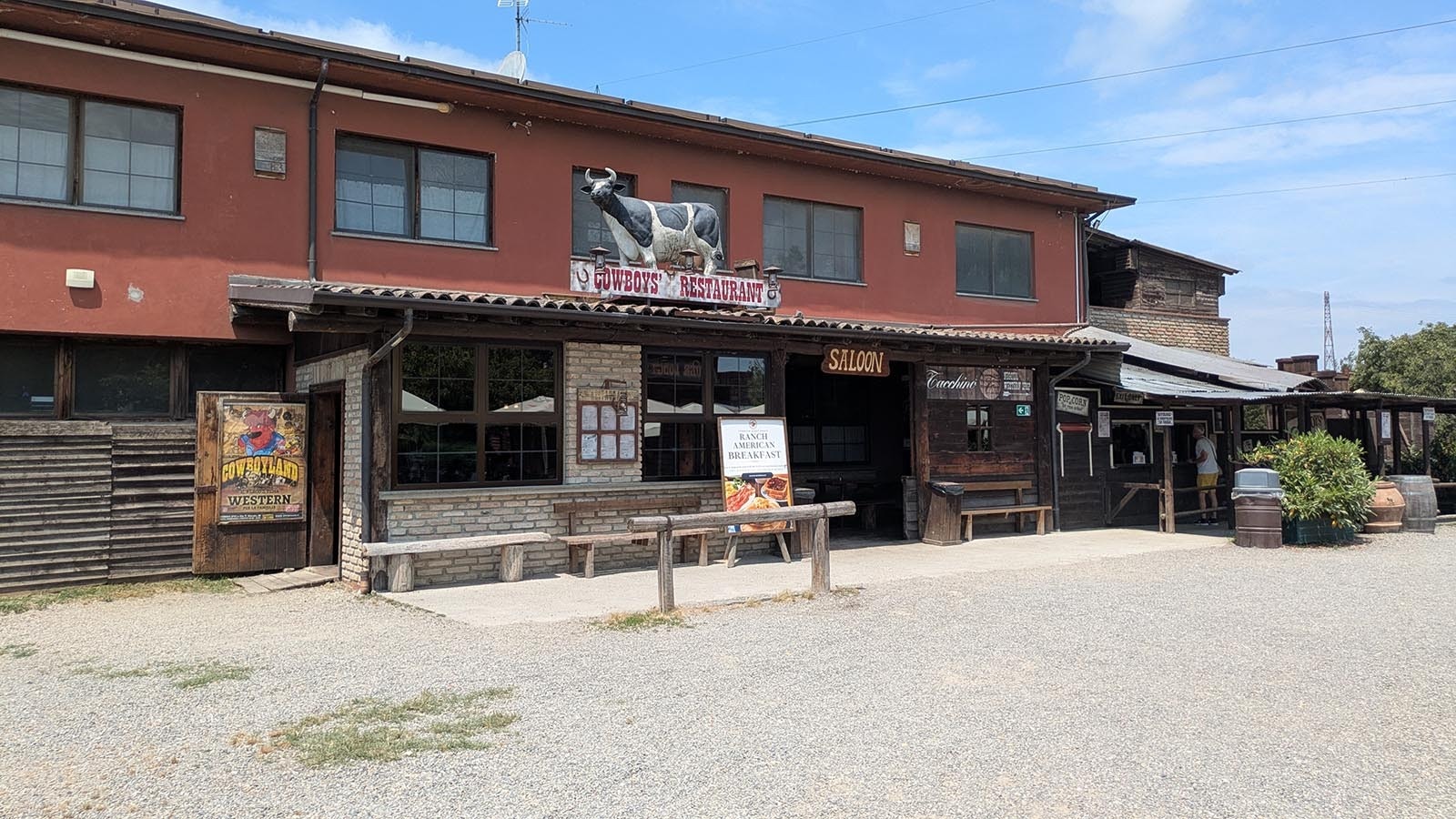Cody resident Kalyn Beasley couldn’t believe his ears when he overheard a concessions employee at Yellowstone National Park giving a legal disclaimer to someone buying a $2.49 box of Yellowstone Animal Cookies.
The attendant at Fishing Bridge General Store warned another customer that the cookies are for human consumption only, they aren’t allowed to feed the cookies to wildlife at the park, and that doing so could get them a $30,000 fine.
It seems the many signs and warnings posted throughout the park and in Yellowstone National Park literature isn’t enough and some people need to be reminded that just because they’re called “Yellowstone Animal Cookies,” it doesn’t mean they’re cookies to be fed to animals.
Beasley said he finds it ridiculous that there’s a personal disclaimer given for this specific product at checkout, but not other food the park sells.
“It’s kind of funny. Do you really have to explain that?” Beasley said. “They sell all sorts of chips and other snacks there, isn’t that the same thing?”
Beasley double-checked with the employee to make sure he was hearing correctly, and sure enough the cashier confirmed it in an interaction he caught on video.
The last part of the employees’ disclaimer was actually inaccurate as the maximum fine someone could receive for feeding wildlife at Yellowstone is $5,000, but that also includes the possibility of receiving up to six months in jail.
Beasley also finds it a little hypocritical the store is providing this disclaimer while simultaneously promoting the product as "wildlife cookies" on the sales rack.
“I think it’s an open contradiction and easily can be misconstrued,” Beasley said. “It’s so egregious.”
Tourists feeding wildlife at Yellowstone has been a well-documented problem for many years, and at one time was even encouraged in the park.
According to Bear Aware, the National Park Service began promoting bear feeding as a way to attract more visitors to the park, setting up feeding stations and a “Lunch Counter For Bears Only” in the 1930s. By the 1960s, the park started phasing out bear feeding, and by the next decade the practice was completely banned.
“They’re kind of doubling down on easily misrepresenting a product,” he said. “Someone who is not a native English speaker may already have enough issues with not understanding how to interact with wildlife.”
Out Of The Box
It’s not difficult to see why the store might make a special case out of its branded cookies.
The imagery on the cookie box features a bison, bald eagle, grizzly bear and wolf, and the cookies are shaped like those animals, all in a vanilla flavor. Think of it as the Yellowstone version of the classic box of Animal Crackers. The background graphic of the box features the Grand Canyon of the Yellowstone.
“In so many ways it could be misconstrued,” Beasley said.
The cookies are made by the Illinois-based Wildlife Cookie Co. This company sells a wide variety of national park-themed cookies from places like Rocky Mountain National, Zion and Mount Rainier national parks. It also makes more general-themed cookies for Alaska and North America, as well as a line of dinosaur and astronaut cookies.
According to the company’s Facebook page, the cookies are available for purchase at zoos, gift stores — including the Buffalo Bill Center of the West in Cody — and airports across America, and can be ordered online for $3 a box.
Ken Smith, owner of the Wildlife Cookie Co., said he heard of a few zoos giving disclaimers for his product, but had never heard of a store in a national park doing so before. He doesn’t understand why the store is specifically calling out his product.
“If that’s what they want to do that’s fine,” he said. “I don’t quite get the mixup, but that’s fine.”
Smith actually drew his inspiration for starting his business after working in a store at Old Faithful in Yellowstone during summer 1999. After noticing there were only Barnum’s Animals Crackers sold there, Smith thought it would be neat if there could be some Yellowstone-specific cookies.
Yellowstone became Smith’s first cookie account in 2001. His cookies can now be found in about 75 stores in the U.S. and Canada for a gig that’s become his full-time job.
“I would like to think that God put me in that store,” he said.

Not Actually Their Call
Linda Veress, a Yellowstone spokesperson, pointed out to Cowboy State Daily that giving a disclaimer is not actually the choice of the park, but rather the concessionaire that runs the general store, New York-based Delaware North.
“That said, the National Park Service is consistent in its messaging that visitors should never feed wildlife. Animals that become dependent on human food may become aggressive toward people and have to be killed,” Veress said. “Keep all food, garbage or other smelly items packed away when not in use.”
Glen White, a communications director for Delaware North, said the employee must have been joking and that they don’t instruct people to issue disclaimers when selling the cookies.
Morality
Beasley, a lifelong Cody resident, is well-accustomed to hearing about the public engaging in dangerous and harmful encounters with animals in the park, as Cody is only a little more than an hour's drive from the Yellowstone East Entrance.
When wildlife become dependent on humans for food, they tend to lose their own self-reliance and stay in close proximity to humans.
“It leads to bears at campsites, it’s such a no-brainer for people around here,” Beasley said.
Beasley has no problem with the park giving a disclaimer on the cookies but also finds it hypocritical given the many other food products sold at the park. He predicts Yellowstone will likely discontinue selling the cookies given the attention he’s brought to the matter.
“He knows clearly there’s been some misrepresentation, so why do you continue to sell that?” Beasley questioned. “I was blown away, this can’t be real.”
Contact Leo Wolfson at leo@cowboystatedaily.com
Leo Wolfson can be reached at leo@cowboystatedaily.com.





